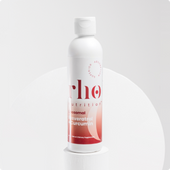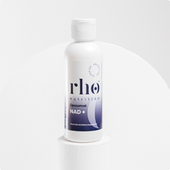Turmeric is a spice commonly used in Indian and Middle Eastern cuisine, and it has been used for centuries in traditional medicine. The active compound in turmeric, called curcumin, has been studied for its potential health benefits. We will explore the benefits of turmeric and curcumin, as well as the evidence behind their use for reducing chronic inflammation.
What is Turmeric?
Turmeric is a spice that comes from the root of the Curcuma longa plant. It has a bright yellow color and is commonly used in curries, soups, and sauces. Turmeric has been used for thousands of years in traditional medicine to treat various ailments.
What is Curcumin?
Curcumin is a bioactive compound found in turmeric. It is responsible for the spice's vibrant color and has been studied for its potential health benefits. Curcumin is a powerful antioxidant and anti-inflammatory compound that has been shown to have potential health benefits.
Benefits of Turmeric and Curcumin
-
Anti-Inflammatory Properties: Curcumin has been shown to have potent anti-inflammatory properties, which may help to reduce inflammation in the body. Inflammation is linked to many chronic diseases, including heart disease, cancer, and Alzheimer's disease.
-
Antioxidant Properties: Curcumin is a potent antioxidant, which means it can help to protect cells from damage caused by free radicals. Free radicals can damage cells and contribute to the development of chronic diseases.
-
Pain Relief: Curcumin has been shown to have pain-relieving properties, particularly in people with osteoarthritis. Studies have found that curcumin can help to reduce pain and improve function in people with this condition.
-
Brain Health: Some studies suggest that curcumin may have neuroprotective properties, which could potentially help to improve cognitive function and reduce the risk of neurodegenerative diseases such as Alzheimer's.
-
Heart Health: Curcumin has been shown to have potential benefits for heart health. It may help to improve the function of the endothelium, the lining of the blood vessels, which could help to reduce the risk of heart disease.
There is some evidence to support the use of turmeric and curcumin for certain conditions. For example, curcumin has been shown to be effective in reducing pain and improving function in people with osteoarthritis. It has also been shown to have potential benefits for heart health.
Conclusion
Turmeric and curcumin have been used for centuries in traditional medicine, and they have been studied for their potential health benefits. While more research is needed, there is some evidence to support the use of turmeric and curcumin for various health conditions. By incorporating turmeric into your diet or taking a curcumin supplement, you may be able to reap the potential benefits of these powerful compounds.













Leave a comment